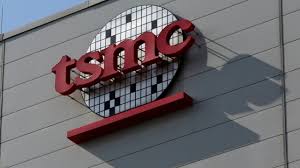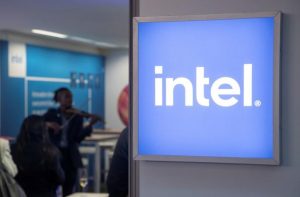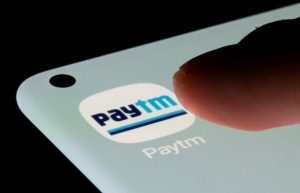(ATF, Taipei) – No company is sure of emerging unhurt from the coronavirus outbreak as it spreads across much of the world. But if one were to make it, analysts pick Taiwan Semiconductor Manufacturing Co. based on its leads in technological knowhow, a long-term demand for chips that support new technology and lack of China exposure compared to a lot of its peers.
The company better known as TSMC, a New York-traded bellwether for health of the global semiconductor industry, will remember the first quarter this year as a soft spot rather than a hard knock but face pressure later to quit taking orders from China, analysts believe.
“Even with the coronavirus adjustment, I still think TSMC could do very well,” said Samuel Wang, California-based VP analyst with the market research firm Gartner.
“Due to the lack of competition, TSMC has been able to commit and maintain a very high wafer price as well as a high gross profit margin,” Wang said. “This year will be the same.”
The 33-year-old company makes chips on contract largely for smartphones and PCs. It announced fourth quarter revenue of nearly $10.4 billion with net income of $3.8 billion – 16% higher than the final three months of 2018. It forecast on January 16 an operating profit margin between 37.5% and 39.5% this quarter based on about the same revenue but in February revised its first-quarter sales forecast to a minimum $7 billion, down from as high as $7.4 billion, due to substandard materials.
TSMC ranked first among chipmakers in first-quarter revenue, Taipei-based market research firm TrendForce said in a research note on March 19. It attributes the revenue to orders made in advance and business from developers of gear for 5G wireless technology, the internet of things and automotive electronics.
Its shares on the New York Stock Exchange have dropped 13.6% since the start of 2020 through to March 9, milder than the NYSE Composite market fall of 17.5% over the same period.
Economic mayhem
TSMC would pull through the coronavirus economic mayhem because it has less exposure to China compared to other major manufacturers, tech market researchers say. The novel coronavirus outbreak originated in China in December and sickened tens of thousands of people, most of the world’s early total. Factory work and supply deliveries slowed in February because workers were staying home and avoid the disease.
Only 2.5% of TSMC’s total production takes place in China, said Liu Wei, industry analyst with the Market Intelligence & Consulting Institute in Taipei. By contrast, Taiwanese iPhone assembler Foxconn Technology does most of its production in the mainland. Camera module developer Largan Precision, another Taiwan-based Apple client that relies on China, expected a month-on-month decline in shipments for February, a spokesperson said.
“Since most of TSMC’s product lines are still located in Taiwan, the impact of the coronavirus outbreak on their production is minor,” Liu said.
Complete local semiconductor supply chain
“On top of that, Taiwan has a complete local semiconductor supply chain that can supply sufficient silicon wafers, chemical materials and related consumable components for wafer manufacturing,” he said. “If the coronavirus outbreak continues longer than expected, Taiwan’s wafer foundry industry will still manage to obtain a stable supply, so the impact will be minimal.”
Demand for devices that run on newer technologies are expected to complement TSMC’s capabilities. Those technologies are artificial intelligence, high-performance computing and internet-of-things wireless connections. Those developments will keep the semiconductor sector powered past 2020, analysts predict.
The world artificial intelligence market is likely to reach $190.6 billion by 2025 after rising at a 36.62 compound annual growth rate since 2018, research firm MarketsandMarkets forecasts. The global high-performance computing market – essentially computing for the cloud and for data centers – should stand at $44.98 billion by 2022 on a compound annual growth rate of 7% since 2017, the research firm says.
Growing use of 5G-enabled gear should revive the telecom market after two years of declining smartphone sales, Liu said. Because 5G technology has high frequency and low latency, he said, it can help power internet-of-things connections.
TSMC’s materials and manufacturing equipment come largely from Japan, Europe and the United States rather than China where the virus outbreak has stalled supply chains, said Chris Hsu, an analyst with Taipei-based market research firm TrendForce.
“The virus outbreak will cause some problems with the supply chain, but the semiconductor cycle is much more prepared with the lead time on materials, so I think they will be doing OK for the rest of the year,” said Jason Hsu, a former Taiwan legislator who specialised in tech issues when in parliament.
TSMC can grow revenue this year from its average selling price of chips made through advanced 7-nanometer and 5-nanometer manufacturing processes, Wang said. Mass production of 6-nanometer chips is expected this year too. Competitors such as Samsung and UMC either lack some of that technology outright or haven’t caught up to TSMC’s levels, Wang said.
The numbers 5 and 7 refer to the sizes of cuts in a silicon chip. Smaller cuts allow the processors to run faster and sometimes with fewer defects. TSMC uses a 28-nanometer process for chips that power smartphones and home entertainment machines. A 7-nanometer process using extreme ultraviolet will reduce power consumption by 10%, company spokesperson Elizabeth Sun said last year. She declined comment for this report.
Cutback in purchasing power
China could still chip into TSMC’s sales, analysts caution.
A drop in Chinese orders because of a “cutback” in purchasing power brought on by the virus outbreak would erode business, Hsu said. Market direction in China will affect TSMC’s financials throughout the year, he said.
Any increases in US sanctions against Chinese telecom giant Huawei would affect orders to TSMC from Huawei subsidiary HiSilicon, Hsu added.
Media reports in Taipei said in November the US government asked TSMC to suspend sales to Huawei over suspicion that the Chinese firm was spying on the United States. American companies had been banned since 2012 from using Huawei networking equipment.
HiSilicon is normally a “major” TSMC client, Taiwan-based DigiTimes.com reported in January, but the Chinese firm Semiconductor Manufacturing International is likely to pick up more of its orders. Business from other clients should cover any lost HiSilicon orders, however, Hsu said.
























